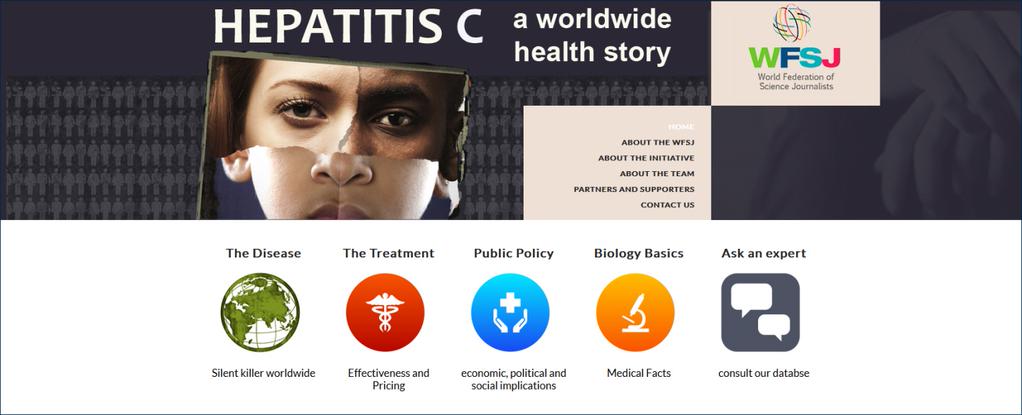-
- Video omitted
- Originally, the text contained a series of short video clips with
- - Charles Gore, President, World Hepatitis Alliance (WHA),
- - Jean-Michel Pawlotsky, Professor of Medicine, University of Paris-Est, and
- - Karine Lacombe, Ass. Professor, Dept. of Infectious and tropical diseases of Saint-Antoine Hospital (AP-HP), Paris
- Unfortunately, these short video clips no longer works and has been omitted, as of September 2021

Hepatitis C (HCV) is a crisis that in a way has crept up on us. Specialist doctors have been in the known of HCV for years, but because the virus initially was thought to cause only minor, acute health problems, it did not constitute grounds for concern among public health officials and politicians.
Only in recent years have more serious, long term effects come to light, making HCV one of the big killers globally - on par with HIV/AIDS.
What may be even more surprising is that most of these deaths are preventable thanks to a new treatment, which in its relatively short time of use appears to cure the infection.
The downside is that the cure is pricy and good data are lacking on how many are infected and in need of treatment on a global scale.
This essay will look at HCV in a public health and political context
- How a misconception of HCV became a public health crisis.
- The role of public health
- How to find those who are infected, but do not know it?
Price, who to treat, when
Throughout the text are questions for the inquisitive journalist to ask






